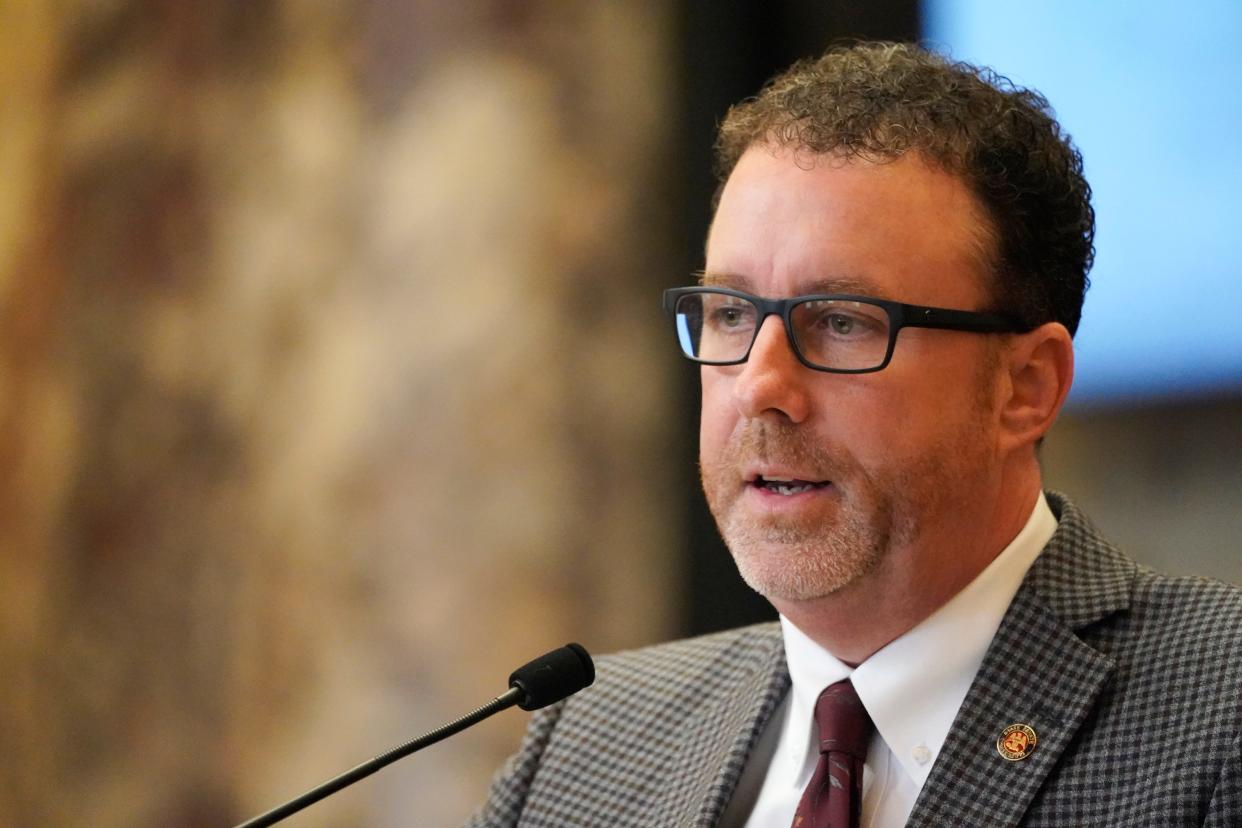Here's what you should know about state efforts to regionalize the Jackson water system

Jackson's water system could soon be owned by a regional authority, rather than the city government, if a bill making its way through the state legislature becomes law.
The capital city has had problems with its water system for decades, culminating last summer when residents went 45 days under a boil water notice.
What's the latest on the bill?
On Tuesday, the Mississippi Senate passed a bill sponsored by Sen. David Parker, R-Olive Branch, that would pave the way for a regional authority to take over the system once federally appointed administrator Ted Henifin leaves. The bill passed 34-15, with support from the chamber's Republicans and vocal opposition from its Democrats, including those that represent Jackson.
Senate Bill 2889 would create a Mississippi Capital Region Utility Authority, overseen by a nine-member board. The amended version of the bill, which passed the Senate, would give four appointments to the mayor of Jackson, three to the governor and two to the lieutenant governor. One of the governor's appointments would be made with input from the mayor of Byram, while one of the lieutenant governor's would be made with input from the mayor of Ridgeland.
Will it pass?
SB 2889 passed the Senate with a reverse repealer, added by Sen. John Horhn, D-Jackson. That allows it to stay alive past usual deadlines, but if the chamber does not remove the repealer before session ends the bill will expire before it ever takes effect.
The next step for the legislation will be in a House committee. If it passes there it will reach the full House. At both steps there will be opportunities to make amendments. If changes are made, the Senate would have to approve the bill again. Both chambers will need to remove the repealer.
"As we all know, this bill is the type of bill that is likely to come back to this chamber later on," Parker said Tuesday.
When would it actually happen?
When Henifin was appointed by a federal judge in November, no expiration date was given to his time in Jackson. Parker said it could be one year, and it could be 30. According to previous reporting, it is likely to be closer to the former.
Regardless, the regional board would not assume control until the system was no longer under federal conservatorship. That said, the board would be created earlier so that they could "come up alongside" Henifin, allowing for a more seamless transition, Parker said.
What do critics say?
Jackson Mayor Chokwe Antar Lumumba has long been a vocal critic of regionalization, saying that it could result in revenue not being used to help the city he leads.
"I think that there have been frequent and necessary conversations about the equity of resources being distributed from the state to the city of Jackson. A regional authority, any way you measure it up, in essence will be state control," Lumumba said in a November interview with the Clarion Ledger. "You deal with the threat of the revenue being siphoned off to priorities which may not be the highest priority to the repairs and improvement to the system for the residents of Jackson. And so that remains a concern."
Parker said that he spoke with Lumumba last week, and that the conversation was productive. A spokesperson for Lumumba said the mayor's general position on regionalization has not changed, but said that last week's meeting was cordial.
Horhn was one of the most vocal critics against the bill Tuesday. As he spoke a majority of Democrats in the chamber began to assemble behind him.
"We're taking this asset, a multi-million-dollar asset, without any compensation, without any real compromise, we're just we're going to do it because we can do it. You know, somebody once said just because you can doesn't mean that you ought to. This is a situation where we ought not do this," Horhn said. "I pray for the day when the leadership of Jackson and from the governor on down the leadership of this state will come together and say 'Look, we've got some problems. We know we have some problems. We know the problems are massive. We need help.'"
This article originally appeared on Mississippi Clarion Ledger: Will the Jackson, MS water system become a regional utility?

